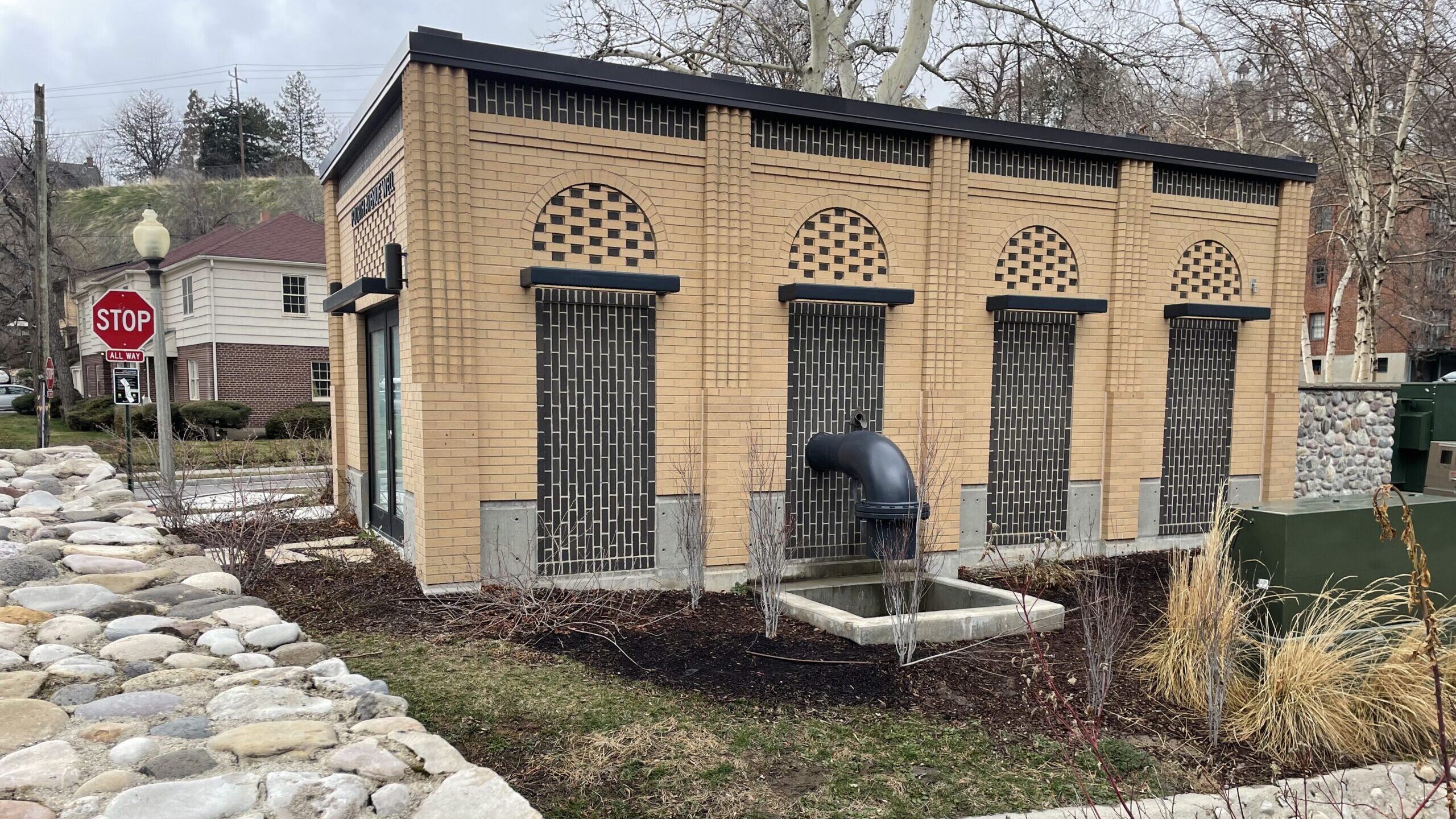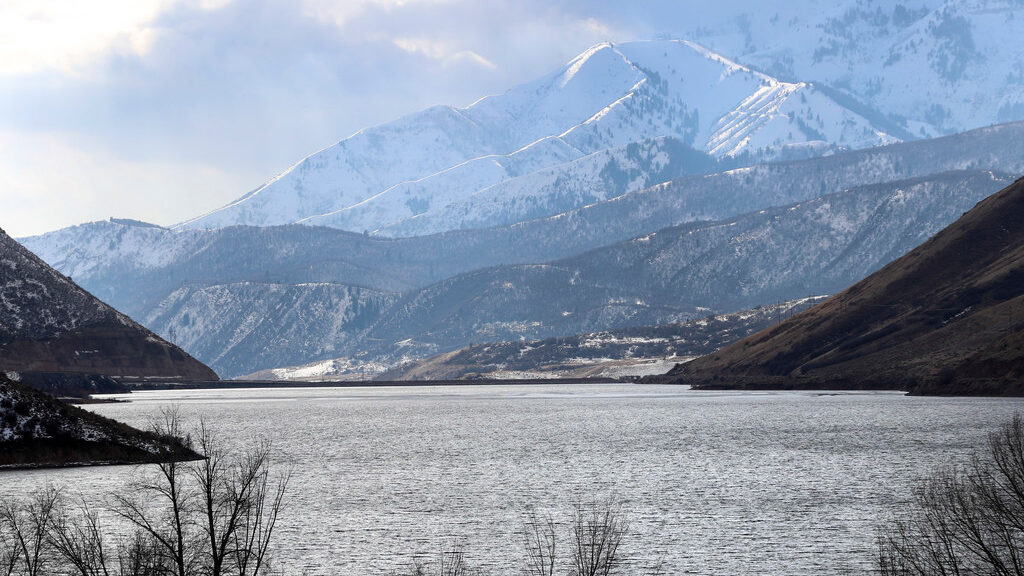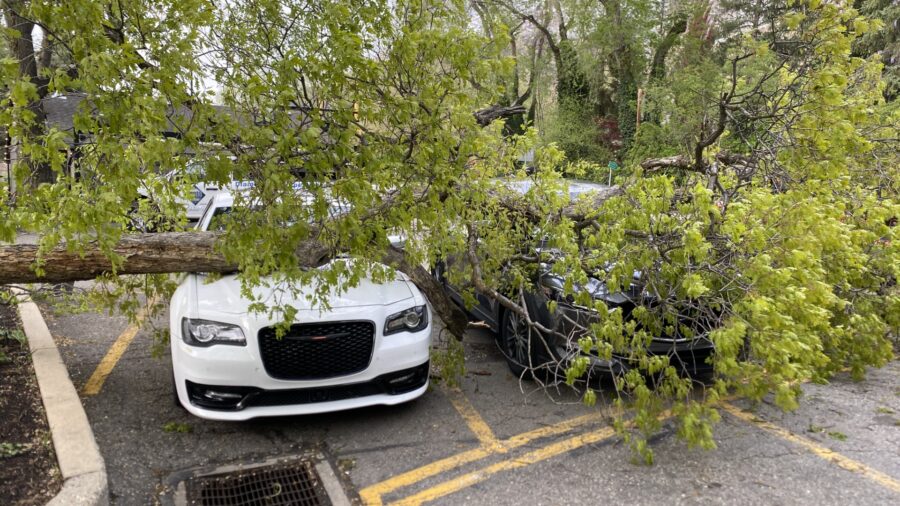Salt Lake water officials say there’s ‘no danger” to drinking water after forever chemicals were found in two city wells
Mar 8, 2024, 8:30 AM | Updated: 4:36 pm

A federal test of this well located in Salt Lake's Memory Grove, found small amounts of "forever chemicals," in the well water in March 2024. (Shelby Lofton, KSL TV)
(Shelby Lofton, KSL TV)
SALT LAKE CITY — During a recent federal water sampling program, Salt Lake City officials discovered PFAS, or “forever chemicals,” in two of the city’s more than 20 groundwater wells.
Salt Lake City Department of Public Utilities Director Laura Briefer said there’s no danger to drinking water, and the wells in question are not currently in use.
“What I want people to know is that we take this finding really seriously because of what’s happened in other places in the country,” Briefer said.
The test was conducted in October 2023, with follow-up tests the following month.
What forever chemicals were found and where in Salt Lake are the wells?
After their testing, the city detected 7.8 parts per trillion of PFAS in the well water.
Briefer said that if they filled the Rose Bowl Stadium with water, the PFAS found in the wells would equal 10 drops of water.
University of Utah Civil and Environmental Engineering Professor Dr. Ramesh Goel said any amount of PFAS in groundwater is concerning.
“Finding it in the groundwater is pretty alarming,” he said. “That means there is a source somewhere which is making its way all the way to groundwater.”
Goel said, that once PFAS get into the environment, they’re nearly impossible to destroy, hence their nickname, “forever chemicals.”
Northern Utah snowpack, water in good shape ahead of spring runoff
One of the wells is near the George E. Wahlen Department Of Veterans Affairs Medical Center in Salt Lake City. Officials said it hasn’t been used since the 1990s.
“That well has not been in use for many, many years in large part because the VA hospital has a historic groundwater contamination issue from historic practices that, when we turn that well on, potentially impacts that well,” Briefer said.
The other is the Fourth Avenue Well in the Memory Grove area.
“That well is currently not in use,” said Briefer. “[It’s] one of those wells we turn on only during the summertime.”
Briefer said they were surprised to find PFAS there.
“It’s right in the middle of a quiet little residential community and everything upstream hydrologically from that well is protected,” she said.
She said recent work on the wellhouse may have contributed to the PFAS detection.
“There could have been some kind of contamination from the construction materials themselves because as I mentioned, this is a very pervasive chemical that’s used in a lot of things,” Briefer said.
Briefer said they’re focused on finding the source of the PFAS first. Then, they’ll figure out how to eradicate the PFAS in the groundwater.
“Right now, there is not a health effect to our community,” she said. “The wells are not putting water into our system.”
Goel said PFAS are found in everyday products, from cosmetics to cookware to clothing.
“They are everywhere,” he said. “We have to work in both ways, stop their discharge and minimize their discharge and then whatever we can do to detect the concentrations.”
He recommends people find ways to change their lifestyles and habits to cut down on PFAS.
“Simplicity is the best thing,” he said. “In my own household, we don’t use nonstick cookware anymore. We use all made from metal, primarily steel.”
He said PFAS have been detected in plants and animals, too, further contributing to human exposure. He said the health risks they pose can be severe.
“Whatever we can do to minimize that, will reduce or eliminate their presence will be awesome for the humanity, for the community, for the society as a whole,” Dr. Goel said.
What are the next steps after this testing?
According to Salt Lake City public utilities officials, the federal sampling program, or UCMR5, “requires water systems throughout the nation to test for 29 per-and poly-fluoroalkyl substances (PFAS) and for lithium.” These compounds are not regulated under the federal Safe Drinking Water Act.
Briefer said the EPA hasn’t established a standard for PFAS levels.
“This is an emerging contaminant that … we wouldn’t have tested for in the past because it just wasn’t known that it was an issue,” she said.
Utah does require testing for PFAS, as does the Environmental Protection Agency. That’s because they’re linked to serious health issues, like birth defects and cancer.
Salt Lake City officials are investigating and will keep the wells offline until tests come back completely clean. Briefer said that if they haven’t finished their investigation by then, they will need to use a back-up water source to make up for the Fourth Avenue Well closure.
“We do plan for worst-case scenarios,” she said. “It will be in the next few months where we have a lot more answers. We want to have a lot more answers before the irrigation season starts.”













